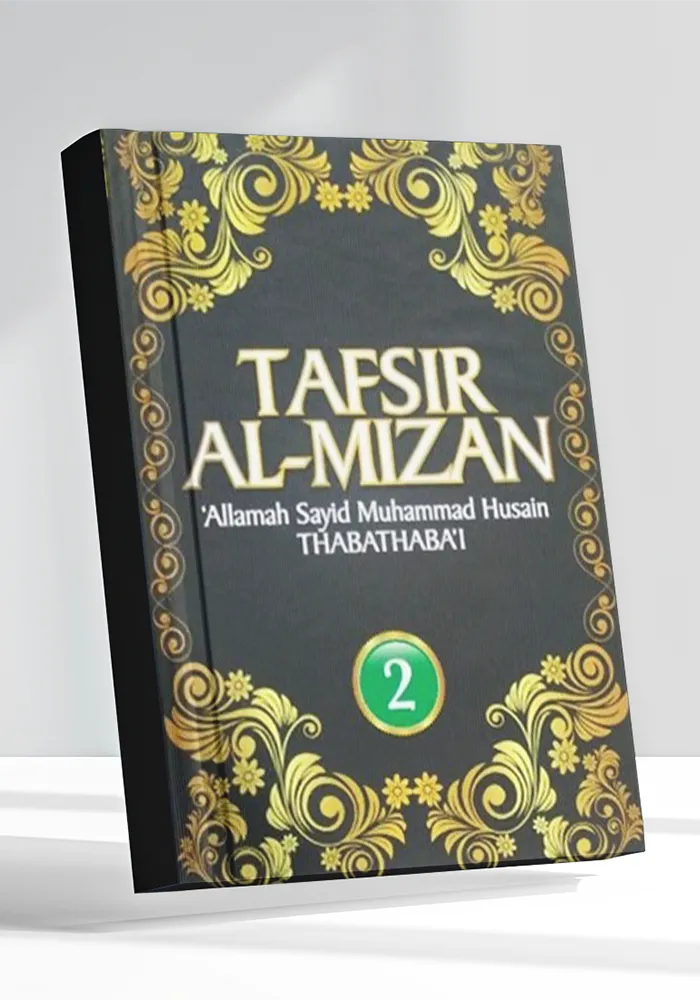Al-Mizan fi Tafsir al-Qur’an
Bibliography:
- Author: Allama Sayyid Muhammad Husayn Tabataba’i
- Publisher: Dar al-Kitab al-Islamiya, Tehran and Beirut
- Language: Arabic (original); available in Persian, English, Urdu, and Spanish translations
- Volumes in Arabic language: 20
- Pages (approximate total) in Arabic: 8,000
- Volumes in English language: 40
- Free and full access to all the 40 volumes of the Tafsir Al-Mizan at: https://almizan.org/
- Introduction
The Quran has inspired countless commentaries throughout history, but few works have achieved the breadth and depth of Tafsir al-Mizan. Written by Allama Sayyid Muhammad Husayn Tabataba’i (1903–1981), Tafsir al-Mizan (Arabic: تفسير الميزان) is widely regarded as one of the most important works of Quranic exegesis in the modern era. Allama Tabataba’i’s approach harmonizes the intellect with spiritual insight, seeking to understand the Quran’s message as a holistic and interconnected revelation. This work is widely celebrated for its deep philosophical insights, its method of interpreting the Quran through the Quran itself (known as tafsir al-Quran bil-Quran), and its balanced use of traditional and rationalist approaches.
- The Author: Allama Tabataba’i
Allama Tabataba’i was a prominent Iranian scholar, philosopher, and theologian, recognised for his contributions to Islamic philosophy and mysticism. Born in Tabriz, Iran, he was educated in the classical Islamic sciences and later in Qom, where he studied under influential scholars. His intellectual rigor, coupled with a deep spiritual commitment, shaped his unique approach to Quranic exegesis, culminating in Tafsir al-Mizan. Through this work, Allama Tabataba’i aimed to address both contemporary and classical questions, providing insights relevant to modern readers.
- Methodology and Approach
Allama Tabataba’i employed a multifaceted methodology that combines linguistic analysis, thematic exploration, and rational inquiry. His approach can be understood through the following key aspects:
- Interconnected Exegesis: Tafsir al-Mizan relies heavily on the principle that the Quran interprets itself. Allama Tabataba’i frequently cross-references verses to show the inherent unity within the text of Holy Quran, allowing one verse to clarify the meaning of another.
- Rational and Philosophical Inquiry: Trained as a philosopher, Allama Tabataba’i incorporates reason and logical analysis into his exegesis. He engages with philosophical issues, particularly those concerning existence, knowledge, and metaphysics, reflecting his grounding in Islamic philosophy.
- Balanced Use of Hadith: While grounded in the Quran, Tafsir al-Mizan draws on authentic Hadith to complement the interpretation of verses. Allama Tabataba’i exercises caution, verifying sources and prioritizing Hadith that align with Quranic principles.
- Thematic Unity: Each chapter or group of verses is treated as a coherent unit, enabling the reader to understand the broader message conveyed by the chapter in addition to the specifics of individual verses.
- Significance of Tafsir al-Mizan
Tafsir al-Mizan has become an essential reference for students, scholars, and anyone interested in a deeper, more contextualized understanding of the Quran. Its emphasis on thematic unity and reasoned analysis makes it particularly relevant for readers in a modern context, where questions of faith, logic, and coherence are ever-present. The commentary’s structure allows readers to see the Quran as an interconnected whole, providing a holistic perspective that has influenced contemporary Quranic scholarship and inspired numerous studies.
In an academic setting, Tafsir al-Mizan serves as a vital tool for understanding the Quran in a structured, rigorous manner. It is used in Islamic studies programs to introduce students to traditional and philosophical interpretations of Quranic verses. Additionally, the text’s systematic approach and focus on thematic unity make it a valuable resource for training students in the methodology of Quranic exegesis.
news via inbox
Subscribe to the newsletter.




